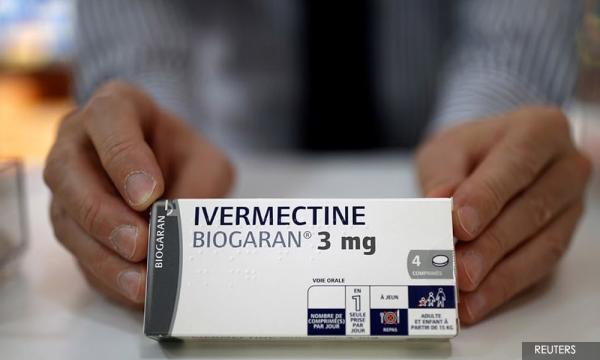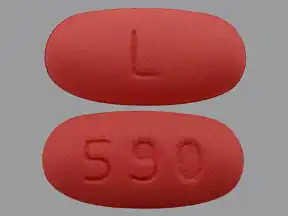Your Treatment of equine lameness exam images are ready. Treatment of equine lameness exam are a topic that is being searched for and liked by netizens now. You can Find and Download the Treatment of equine lameness exam files here. Download all royalty-free images.
If you’re searching for treatment of equine lameness exam images information linked to the treatment of equine lameness exam topic, you have pay a visit to the right site. Our website always gives you hints for refferencing the maximum quality video and image content, please kindly search and find more informative video articles and images that fit your interests.
Treatment Of Equine Lameness Exam. Often the best and most accurate method of isolating the correct area causing lameness is diagnostic blocking. Only once a diagnosis is made can the best treatments be chosen. With this information the appropriate diagnostic imaging can then be pursued and a treatment plan formulated. The diagnosis treatment plan and prognosis are derived from a synthesis of findings from all of the above parts of the lameness exam.
 Sedatives Impact On Equine Lameness Exam Results The Horse From thehorse.com
Sedatives Impact On Equine Lameness Exam Results The Horse From thehorse.com
A thorough lameness exam is where we start and then we offer many lameness diagnostic and treatment services including digital radiography ultrasound and intra-articular joint therapies. The veterinarian watches the horse walking and trottingGait evaluation on a flat. Purpose-built digital video system to record all our lameness examinations says. Examination procedures may include the following as deemed appropriate for the situation. Neurological problems in the horse can contribute to or appear to be lameness symptoms. Evaluation of the horse in motion.
The examination begins with a comprehensive medical history.
Catching and diagnosing equine lameness. Generally lameness exams consist of 1 a careful history 2 a standing exam 3 an exam in movement 4 flexion and hoof tester exams 5 diagnostic anesthesia nerve and joint blocks and 6 imaging the site of injury radiographs ultrasound MRI and others. We believe its important that you have an idea of how we evaluate diagnose and treat our horses. Neurological problems in the horse can contribute to or appear to be lameness symptoms. If the painful area is in the region that was just numbed the horse will become sound or significantly more comfortable. A detailed lameness exam starts with a complete history of the horses activity and then usually continues with multiple physical exams diagnostic imaging and medical nerve blocks.
 Source: randwickequine.com.au
Source: randwickequine.com.au
The first step in a lameness evaluation is a thorough history of both the horse and the owner traimers account of the problem. Generally lameness exams consist of 1 a careful history 2 a standing exam 3 an exam in movement 4 flexion and hoof tester exams 5 diagnostic anesthesia nerve and joint blocks and 6 imaging the site of injury radiographs ultrasound MRI and others. We believe its important that you have an idea of how we evaluate diagnose and treat our horses. A detailed lameness exam starts with a complete history of the horses activity and then usually continues with multiple physical exams diagnostic imaging and medical nerve blocks. Diagnostic analgesia nerve block is performed as necessary to help in pinpointing the location of the lameness.
Source: encrypted-tbn0.gstatic.com
The first step in a lameness evaluation is a thorough history of both the horse and the owner traimers account of the problem. Only once a diagnosis is made can the best treatments be chosen. Lameness Prevention diagnosis and treatment of leg lameness. In May 2016 our Sports Medicine Center opened at our clinic location. Neurological problems in the horse can contribute to or appear to be lameness symptoms.
 Source: hawthorneanimal.com
Source: hawthorneanimal.com
Our professional staff will perform a thorough lameness examination on your horse and recommend further diagnostics or therapies depending on what issues your horse has. Once the cause of lameness andor poor performance has been established our vets will guide you on the appropriate treatment and management options. In May 2016 our Sports Medicine Center opened at our clinic location. Generally lameness exams consist of 1 a careful history 2 a standing exam 3 an exam in movement 4 flexion and hoof tester exams 5 diagnostic anesthesia nerve and joint blocks and 6 imaging the site of injury radiographs ultrasound MRI and others. A thorough lameness exam is where we start and then we offer many lameness diagnostic and treatment services including digital radiography ultrasound and intra-articular joint therapies.
 Source: researchgate.net
Source: researchgate.net
The most common stress test is a flexion test which is very helpful when the lameness is subtle or when no external signs of a problem can be detected Figure 2. Lameness Prevention diagnosis and treatment of leg lameness. The veterinarian watches the horse walking and trottingGait evaluation on a flat. The first step in a lameness evaluation is a thorough history of both the horse and the owner traimers account of the problem. We believe its important that you have an idea of how we evaluate diagnose and treat our horses.
 Source: equimanagement.com
Source: equimanagement.com
Lameness Prevention diagnosis and treatment of leg lameness. Without an accurate diagnosis the horse cannot be properly managed. Medical treatments may include systemic medications joint therapiesinjections anti-inflammatories and science based supplements. Equine Lameness Clinical Lameness Examinations The four basic steps During the lameness examination the veterinarian has to establish firstly the presence or absence of lameness secondly the affected limb thirdly the location of pain and fourthly the cause of the pain. Each horse is treated on an individual basis.
 Source: thehorse.com
Source: thehorse.com
Our diagnostic and treatment plans are tailored to meet your horses needs as well as your own. Computer Tomography CT or CAT scan which produces 3-D images of injuries can aid in the diagnosis and treatment of lameness. This includes Bute or Banamine etc. Prior to a veterinarians examination to diagnose the causes of lameness the horse should be off any pain medications for at least 24 hours. Your veterinarians procedures may vary depending on the past history of the horse and how familiar the vet is with them but essentially these are the steps of diagnosis leading to treatment.
 Source: slideplayer.com
Source: slideplayer.com
A careful examination of the feet of the horse. The cause of lameness is not always restricted to the locomotion system bones tendons ligaments joints and muscles. Each horse is treated on an individual basis. Diagnostic analgesia nerve block is performed as necessary to help in pinpointing the location of the lameness. A thorough lameness exam is where we start and then we offer many lameness diagnostic and treatment services including digital radiography ultrasound and intra-articular joint therapies.
 Source: oceanstateequine.com
Source: oceanstateequine.com
Type age and training regimen may give important clues to the lameness as will the time since onset of lameness interim management and any suggestions that the lameness may improve with either rest or exercise. Most experienced veterinarians have developed systems for examining horses for lameness based on the reasons for the evaluation. The cause of lameness is not always restricted to the locomotion system bones tendons ligaments joints and muscles. Equine Lameness Clinical Lameness Examinations The four basic steps During the lameness examination the veterinarian has to establish firstly the presence or absence of lameness secondly the affected limb thirdly the location of pain and fourthly the cause of the pain. Neurological problems in the horse can contribute to or appear to be lameness symptoms.
 Source: vetmed.illinois.edu
Source: vetmed.illinois.edu
The veterinarian watches the horse walking and trottingGait evaluation on a flat. We believe its important that you have an idea of how we evaluate diagnose and treat our horses. Without an accurate diagnosis the horse cannot be properly managed. In May 2016 our Sports Medicine Center opened at our clinic location. Prior to a veterinarians examination to diagnose the causes of lameness the horse should be off any pain medications for at least 24 hours.
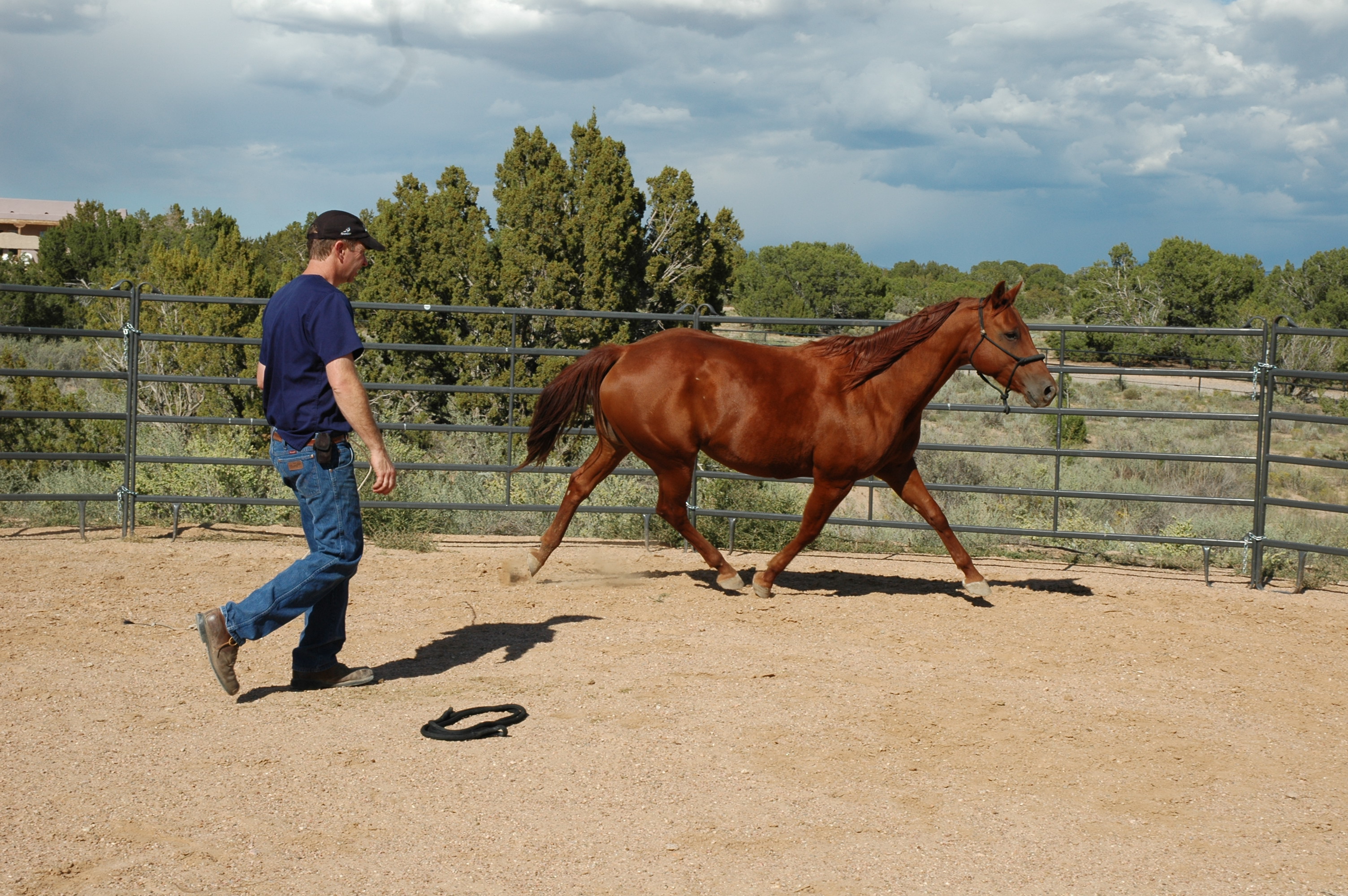 Source: horsesidevetguide.com
Source: horsesidevetguide.com
All horses seen for a lameness issue will have a treatment program tailored for them based on the lameness diagnosis and the health history of the horse. Treatments include but are not limited to Stem Cell Therapy Microscopic Laser Surgery Arthoscopic Surgery Anti-Inflammatory Therapy Antibiotics Joint Medications Joint Lavage and Casts. The Performance or Lameness Exam generally begins with a thorough discussion of the horses history with the owner followed by a detailed palpation and range of motion exercises of the limbs neck and back. Once the cause of lameness andor poor performance has been established our vets will guide you on the appropriate treatment and management options. Taking a medical history.
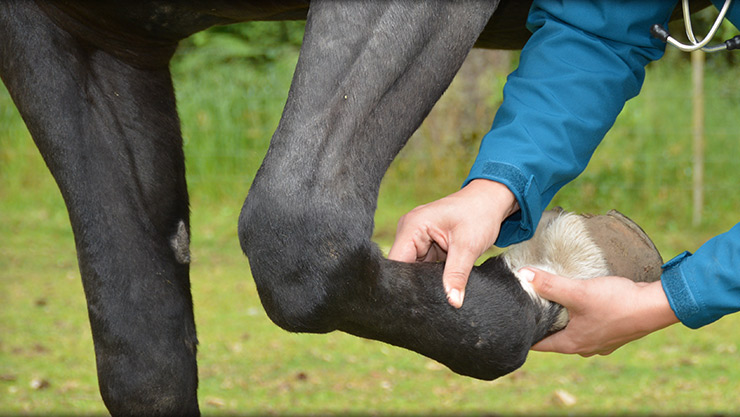 Source: petersburgvetclinic.com
Source: petersburgvetclinic.com
The Performance or Lameness Exam generally begins with a thorough discussion of the horses history with the owner followed by a detailed palpation and range of motion exercises of the limbs neck and back. Once the cause of lameness andor poor performance has been established our vets will guide you on the appropriate treatment and management options. Following static and dynamic exams stress tests are often performed to increase the severity of the lameness. This includes Bute or Banamine etc. Diagnostic analgesia nerve block is performed as necessary to help in pinpointing the location of the lameness.
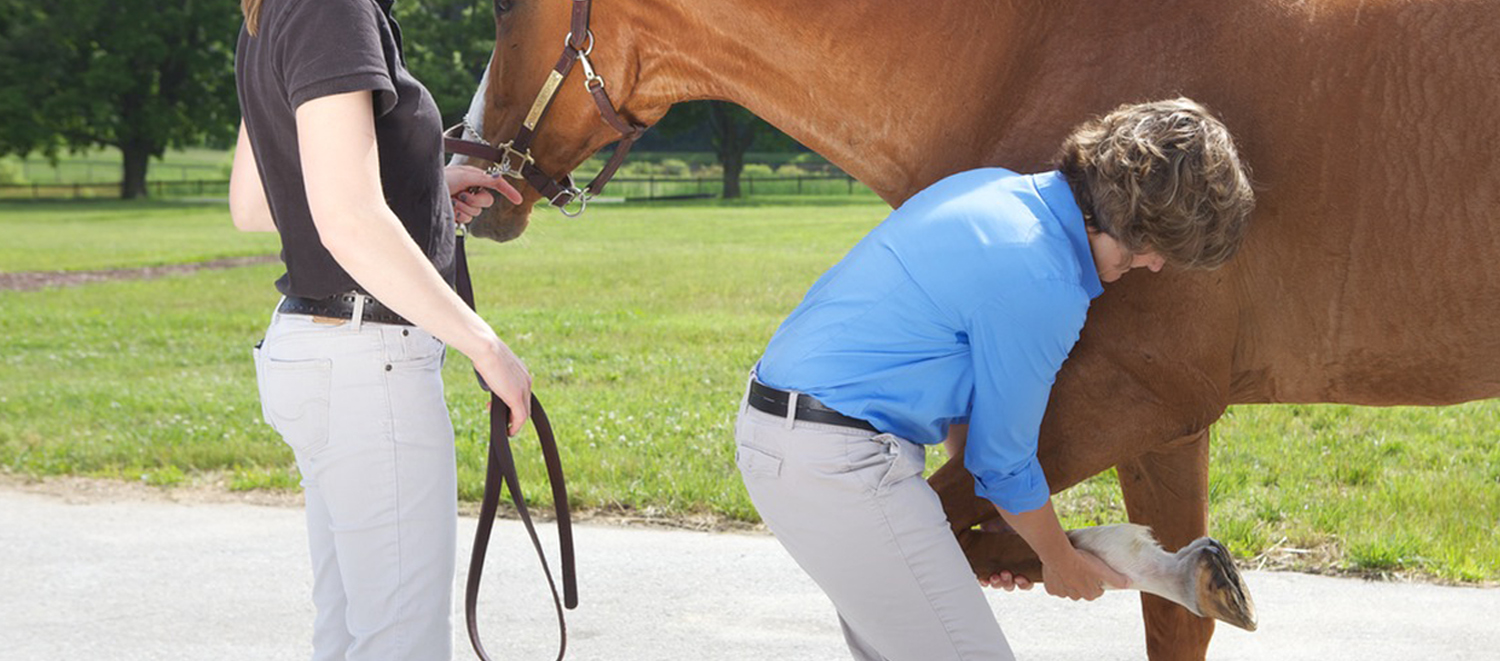 Source: vet.upenn.edu
Source: vet.upenn.edu
With this information the appropriate diagnostic imaging can then be pursued and a treatment plan formulated. Treatments include but are not limited to Stem Cell Therapy Microscopic Laser Surgery Arthoscopic Surgery Anti-Inflammatory Therapy Antibiotics Joint Medications Joint Lavage and Casts. The most common stress test is a flexion test which is very helpful when the lameness is subtle or when no external signs of a problem can be detected Figure 2. Taking a medical history. Diagnostic analgesia nerve block is performed as necessary to help in pinpointing the location of the lameness.
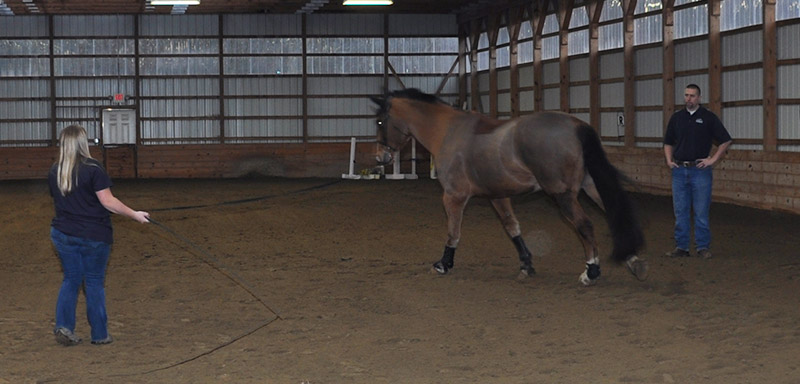 Source: fentonrivervet.com
Source: fentonrivervet.com
Only once a diagnosis is made can the best treatments be chosen. Medical treatments may include systemic medications joint therapiesinjections anti-inflammatories and science based supplements. Physical treatments often involve rest and rehabilitation. With trained eyes and hands your veterinarian will perform a. The diagnosis treatment plan and prognosis are derived from a synthesis of findings from all of the above parts of the lameness exam.
 Source: vet.osu.edu
Source: vet.osu.edu
In May 2016 our Sports Medicine Center opened at our clinic location. With trained eyes and hands your veterinarian will perform a. Neurological problems in the horse can contribute to or appear to be lameness symptoms. Each horse is treated on an individual basis. While steps one to three strongly rely on observational skills step four requires extensive veterinary.
 Source: thehorse.com
Source: thehorse.com
All horses seen for a lameness issue will have a treatment program tailored for them based on the lameness diagnosis and the health history of the horse. While steps one to three strongly rely on observational skills step four requires extensive veterinary. A detailed lameness exam starts with a complete history of the horses activity and then usually continues with multiple physical exams diagnostic imaging and medical nerve blocks. Purpose-built digital video system to record all our lameness examinations says. Often the best and most accurate method of isolating the correct area causing lameness is diagnostic blocking.
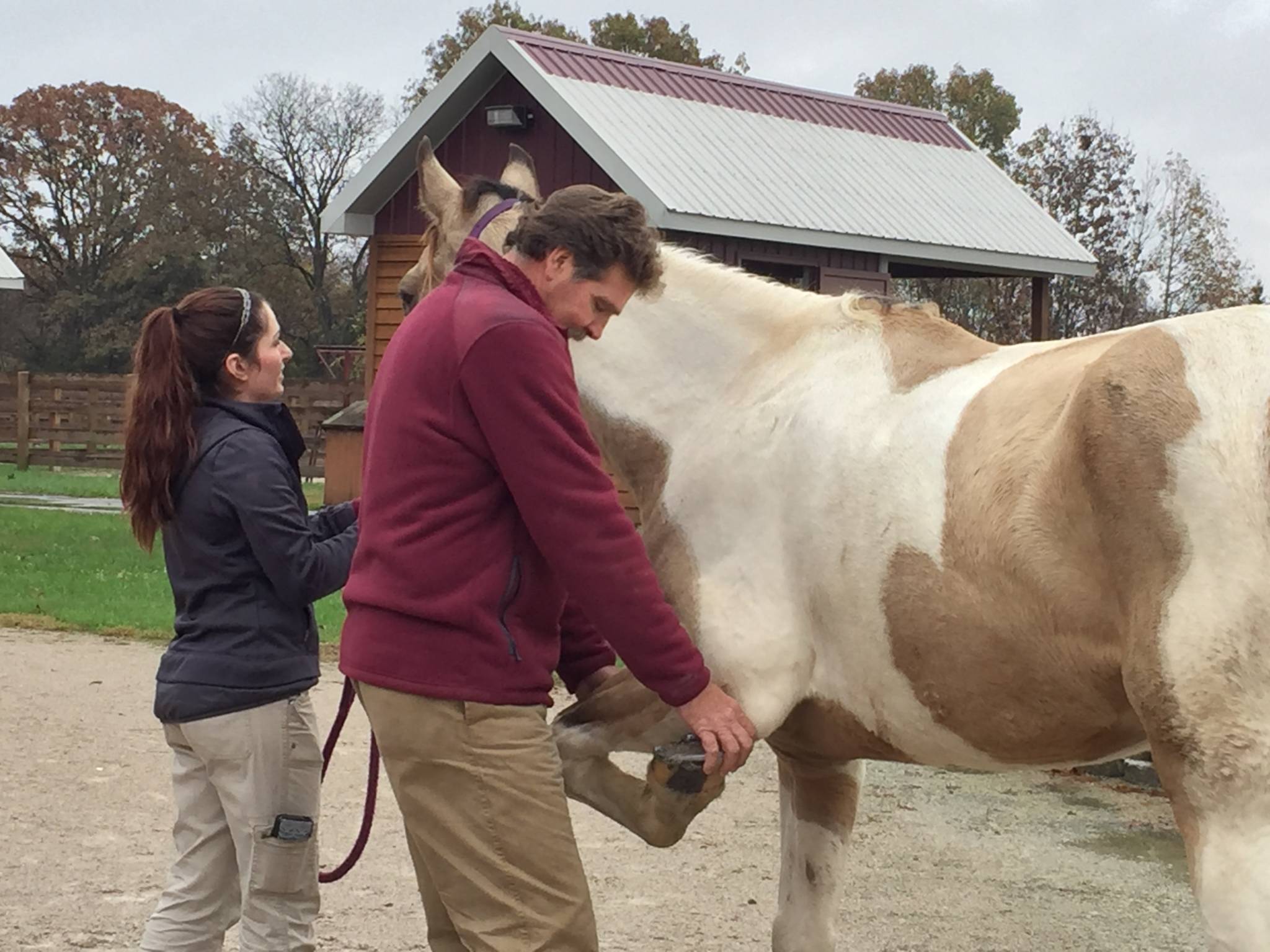 Source: midriversequine.com
Source: midriversequine.com
Many practitioners will concentrate on the front feet as 70 to 80 percent of the horses weight will be supported by the front limbs. Physical treatments often involve rest and rehabilitation. Proper diagnosis and treatment is important to keep your performance horse healthy and sound. Without an accurate diagnosis the horse cannot be properly managed. Examination procedures may include the following as deemed appropriate for the situation.
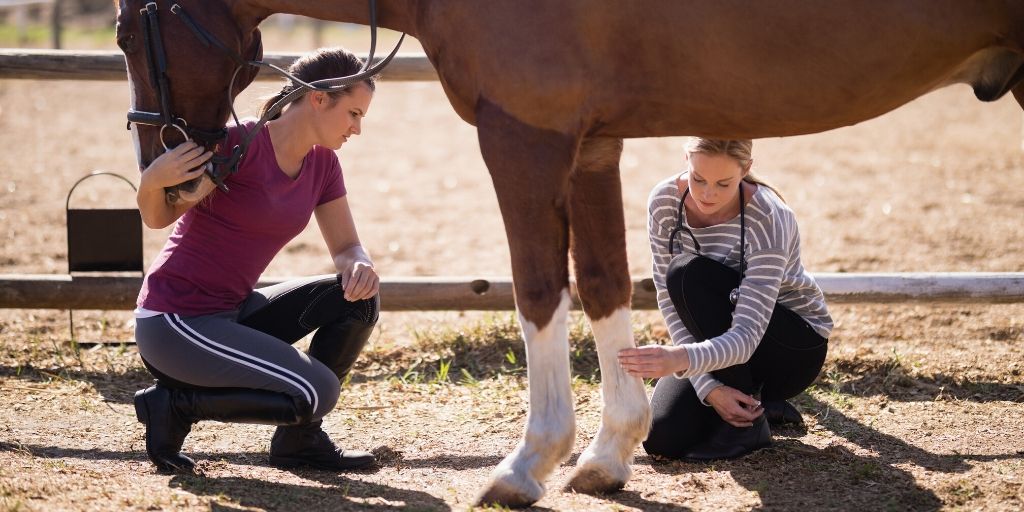 Source: helpfulhorsehints.com
Source: helpfulhorsehints.com
Once the source of the lameness has been identified Oakencrofts expert lameness veterinarians target the issue with a customized course of therapy to get your horse sound again. All horses seen for a lameness issue will have a treatment program tailored for them based on the lameness diagnosis and the health history of the horse. Medical treatments may include systemic medications joint therapiesinjections anti-inflammatories and science based supplements. The most common stress test is a flexion test which is very helpful when the lameness is subtle or when no external signs of a problem can be detected Figure 2. Taking a medical history.
Source: vet.cornell.edu
A careful examination of the feet of the horse. Our professional staff will perform a thorough lameness examination on your horse and recommend further diagnostics or therapies depending on what issues your horse has. With this information the appropriate diagnostic imaging can then be pursued and a treatment plan formulated. This includes Bute or Banamine etc. Catching and diagnosing equine lameness.
This site is an open community for users to share their favorite wallpapers on the internet, all images or pictures in this website are for personal wallpaper use only, it is stricly prohibited to use this wallpaper for commercial purposes, if you are the author and find this image is shared without your permission, please kindly raise a DMCA report to Us.
If you find this site convienient, please support us by sharing this posts to your preference social media accounts like Facebook, Instagram and so on or you can also bookmark this blog page with the title treatment of equine lameness exam by using Ctrl + D for devices a laptop with a Windows operating system or Command + D for laptops with an Apple operating system. If you use a smartphone, you can also use the drawer menu of the browser you are using. Whether it’s a Windows, Mac, iOS or Android operating system, you will still be able to bookmark this website.

